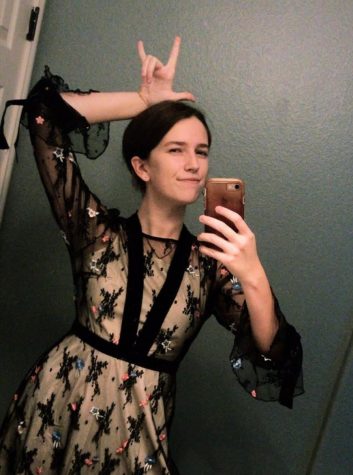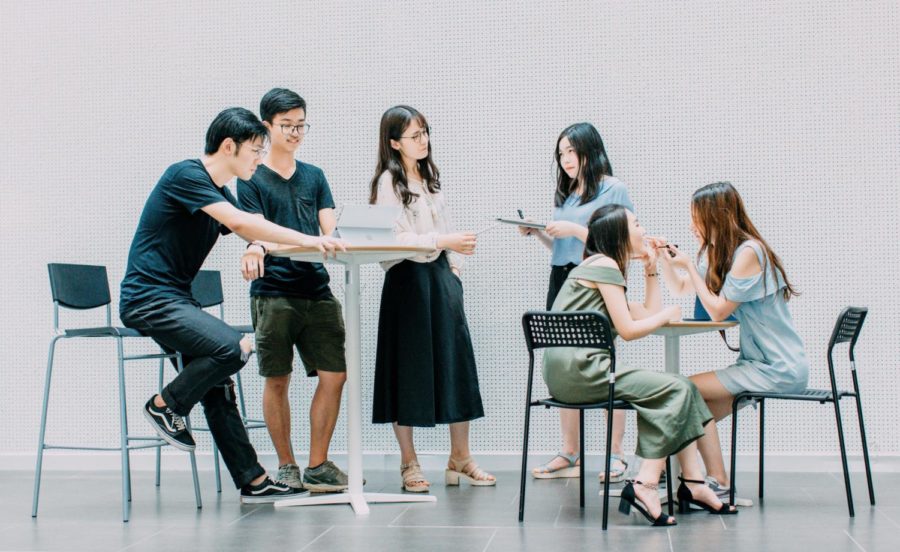A Case of Disruption: The Future of Student Freedom of Speech
More from the Writer

More stories from Shelby Fohl
A First Amendment Supreme Court Case debating the freedom of speech of students outside of school opened with oral arguments Wednesday, April 28. The case could determine whether schools have the right to punish students for what they say off-campus.
The case follows previous high school freshman Brandi Levy, who in 2017 at 14 years old made a Snapchat post surrounding her not making the varsity cheerleading team, as well as the softball team. Her message states “f*** school f*** softball f*** cheer f*** everything”.
After the post was shown to the cheerleading coach, Levy was suspended from the team for the rest of the year. The situation made its way to the federal court, challenging the suspension by saying Levy was not on campus when she made the post and the school had no right to punish her for letting off steam in a bout of frustration. Now the Supreme Court will give their ruling.
The Supreme Court should rule in favor of Levy’s case, as policing student’s speech off-campus infringes on students’ First Amendment freedoms. There is too much leeway with what schools could punish students for saying, which could lead to abuse of the rule and labeling anything critical as “disruptive,” as well as the fact school does not control student’s outside lives and opinions, which they are free to share publicly.
Passing a bill that allows for schools to punish students for their speech off-campus has too much room for freedom of speech infringement. Any speech that is labeled as “disruptive” could land a student in trouble. It is normal for students to express themselves to their friends and on social media, as social media is a platform for public speech, with limitations (given it is not hate speech, harassment, bullying, etc.). These categories however have solid definitions and can be easy to point out. In certain situations this could turn to students getting in trouble for posting a photo of them wearing a shirt in advocacy for LGBTQ+ rights, or at a protest. In Levy’s case, the school punished her for venting out of frustration about losing a spot on the cheerleading team for her sophomore year. This could be seen as unfair, as it does not impact day-to-day schooling or a school’s social climate. Students should be allowed to vent in frustration in a text thread with a friend(s) and not worry about a staff or faculty member seeing it and getting them punished. To add on, any text or speech outside of school that a student says could be labeled as critical to the school/school district and land them in hot waters. The definition and terms of what could be considered “disruptive speech” is too foggy and without a definitive definition too much of a grey area for schools to be given the right to administer punishment to students and what they say off campus.
In addition, schools cannot control student’s lives, expressions, and opinions outside of campus. In the landmark case of Tinker vs. Des Moines from 1968-1969, the Supreme Court ruled that students’ freedom of speech or expression is not prohibited once on campus or in class. The only way speech could be prohibited is if it was deemed “disruptive”, meaning it would cause possible problems or distractions to the learning environment. Applying this to Levy’s case, her expression of frustration towards the school was not disrupting the learning environment, as it was off-campus and only ideally wanting to be seen by those who followed her Snapchat. If the Supreme Court were to rule in favor of schools, this would blur the lines of the decision of Tinker vs Des Moines because while schools are in their rights to prohibit or take action when “disruptive speech” occurs, this decision could give schools too much power to punish students. Schools are allowed to control what happens in their environment, but they should not be able to police their students’ speech once they are outside of campus. There is a line between on and off campus lives and activity. Schools cannot control what students say and do outside of campus, that is and should be out of schools’ hands.
Some may argue that in the digital age and widespread use of the internet speech can spread and become disruptive digitally, or that student speech doesn’t fall under freedom of speech at all. While something a student could say, post, or share could cause a disruption online, it is not in the school’s right to punish a student for what they say or do off campus. Actions have consequences or reactions, whether positive, negative, or neutral. However if the speech is happening off campus schools should not have a say in punishment for when a student steps foot on campus. School and the realms of a student’s life outside of school are different sectors.
Now, when it comes to harassment, bullying, threats, etc. it is a different story. Those could seriously harm or impact others and schools should have the right to enforce punishments as needed. However, if it does not fall under those categories students are still on U.S. soil and should have the right to freedom of speech and expression.
School’s oversight of what students say and do should be relegated to on campus activity, and the Supreme Court should rule in favor of Levy’s case, protecting students’ freedom of speech and not causing a blurred line between off and on campus lives, expressions, and what schools can and can’t punish for. It is understandably difficult to outline what is and isn’t “disruptive speech” in the digital age. A way to maybe help outline this could be focusing on speech that actively promotes hate or is bullying, harassment, stalking, etc. that happens in and outside of school and labeling that as disruptive since it really could impact students’ learning environments.



